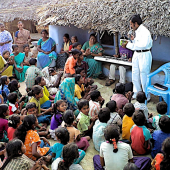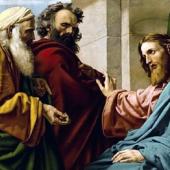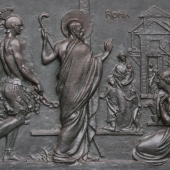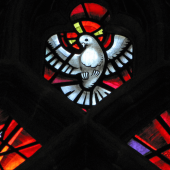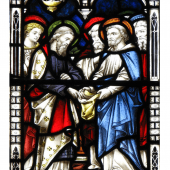Paul’s mission in Europe and Asia
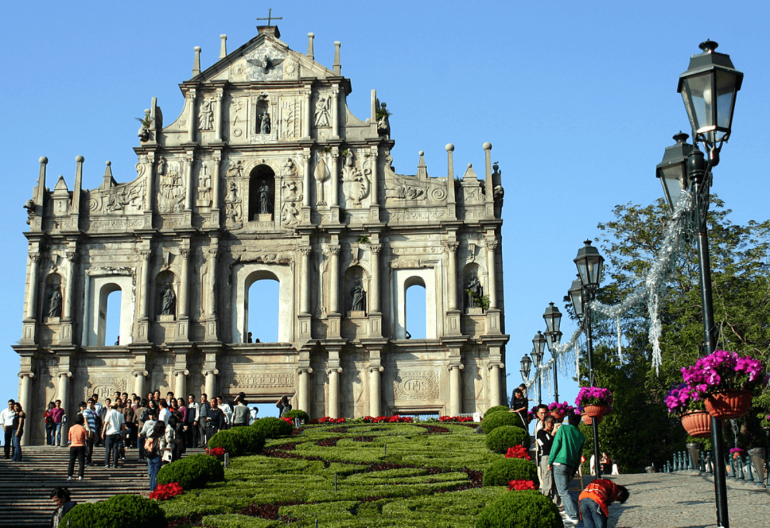
The Acts of the Apostles (Chapters 15:36- 21.16)
We are about to commence Part-5 of the six-part series on the Acts of the Apostles. In Part 4, we accompanied Peter and Paul on their missionary tours. We saw how Christianity established the transition from the law of Moses, reserved only for the Jews, to the redemption of all mankind through the death and resurrection of Jesus Christ. In Part -5, we accompany Paul on his second and third missionary journeys in Europe and Asia and return to Jerusalem.
The section of the Acts, from Chapters 15 to 21, describes Paul’s second missionary journey to Macedonia and Greece, and his third one, revisiting some of the churches in Asia to reinforce the faith of the believers, and then back to Ephesus in Greece, and on to Jerusalem. While the number of believers grew across all these destinations, it was no cakewalk for Paul. Wherever he went, he was hunted down, scourged, imprisoned and brought before authorities on false charges. And yet he tirelessly pressed on, with a single-minded focus on completing his mission.
Paul’s second missionary journey
On his first journey, Barnabas had been Paul’s travelling companion, but they parted ways before the second journey, and Paul took Silas along with him. They revisited the churches in Galatia, handing over to them the letter containing the decisions taken by the Council in Jerusalem, and the churches grew in strength and number.
Paul picked up one more travelling companion, Timothy, and thought it best to circumcise him despite his conversion to Christianity to placate the Jews. This decision has often come in for criticism among many theologians and Christian thinkers. Why would Paul compromise on this central issue of circumcision despite the Council’s unanimous decision against circumcision for Christians?
The best explanation is given by Paul himself, at a later date, in his first letter to the Corinthians- “To the Jews I became like a Jew, to win the Jews. To those under the law I became like one under the law (though I myself am not under the law), so as to win those under the law” (1 Corinthians 9:20). Perhaps, he thought it was best not to provoke the Jews into any confrontational situation as he embarked on his mission.
Paul in Philippi
Prompted by a vision, Paul crossed the Aegean Sea and went to Macedonia. From this point, one more person joins the group—none other than Luke himself. He shifts his position from being a keen observer and chronicler to being part of the action. The crossover from Asia to Europe was not uncommon those days, though it may look like an intercontinental journey from a modern perspective. People living on both shores were closely interconnected. Paul arrived at Philippi and met some women gathered there. Among them was Lydia, a textile dealer who was a believer. She welcomed them to her house and her whole family was baptized.
Mixed fortunes awaited Paul and his companions at Philippi. We know from his later letters to the Philippians that he was satisfied with their progress in sharing their faith with others. Even as their mission here met with success, Paul faced unexpected misfortunes. It started with a minor incident of a slave girl who had the power of fortune-telling. Her owners made a great deal of money through her. She followed Paul shouting out that they were servants of the Most High God. Paul suspected she was possessed and commanded the evil spirit to come out of her. Sure enough, the spirit left her, but this enraged her owners, who could not use her services anymore.
From then on, it was a living hell for Paul and Silas. They were dragged to the marketplace and the magistrate ordered them to be beaten and thrown into prison. Wooden fetters were fixed to their ankles and put under heavy guard. As night fell, Paul and Silas began to sing hymns to God while those around them listened. At midnight a violent earthquake shook the prison. The chains were broken and the prison doors fell open. The jailer saw this and drew his sword to kill himself, quite sure that the prisoners would have escaped. But Paul stopped him. The jailer needed no more persuasion. Paul won his entire family over with his reassuring words— “Believe in the Lord Jesus , and you will be saved -you and your family”(Acts 16:31). The next day they were released and asked to leave the city.
The powerful manifestation of the Holy Spirit in the premises had a two-fold purpose. Paul was spared from further persecution, but, more importantly, it concluded with the conversion of the jailer’s family. Paul’s words quoted above continue to be a source of consolation to all believers up to this day, as it implies that the faith of one person in a family is powerful enough to save the entire family.
Paul in Thessalonica and Berea
Named after the sister of Alexander the Great, the city of Thessalonica was a centre of commerce and attracted several foreigners, including Jews. It was Paul’s next destination and he sought out his cousin Jason who welcomed them in his house. For the following three Sabbaths, he taught and reasoned with the Jews and others in the temple. Some of the Jews, Greeks, and even some prominent women accepted the faith, but there were other Jews who unleashed a witch-hunt by instigating the local ruffians to attack them. They dragged Jason from his house as they couldn’t find Paul or Silas there. He was brought before the magistrates and was fined for entertaining these outlaws as guests. As night fell, the believers helped Paul escape to Berea.
Paul received a better reception initially at the synagogue at Berea, and the interested audience researched the Scriptures every day based on what Paul told them. But the Jewish hunting pack from Thessalonica soon got word of the apostle’s new destination and were on his trail again. Knowing that Paul was the main target, the believers accompanied him on a ship to Athens and instructed Silas and Timothy to follow when possible.
Paul in Athens
At one time, Athens was known for its splendor and wealth, but the Romans had stripped it bare of its former glory. However, it remained a destination of philosophers and freethinkers. Paul found the whole city committed to idolatry, and the governing philosophies were Epicureanism and Stoicism, whose followers believed only in the here and now. They were, however, receptive to new knowledge and fresh ideas, and they gave Paul a chance to present his ‘new teaching’ in front of the Areopagus, the High Council of Athens.
Paul prepared well for this opportunity. He knew he had to address this group differently from those he had addressed in Berea and other places. He faced an audience whose values and beliefs lay diametrically opposite Paul’s teaching. He began cautiously from common ground, touching on their religious instincts, and then told them of an altar he had found in the city dedicated to an ‘unknown God.’ He then established that he had come to speak of this God, who does not abide in created things, as He is the Creator.
His opening remarks had done the trick, and they continued to listen as he talked of the creation of mankind from a common ancestor. God had done this so that man would seek him. He quoted from the Greek poet Aratos, who had said that we are God’s offspring. Having come thus far unscathed, Paul pushed on. He tried to convince them that God is beyond anything man can achieve or accomplish. He talked of the day of judgment when God would judge the world and of Christ’s resurrection from the dead.
The bombshell had fallen! The hardliners mocked him. Hellenists refused to accept the concept of a spiritual resurrection. Others went away saying, “they would hear him again.” However, a few others believed—Dionysius, a member of the Areopagus, and a woman named Damaris were among the believers.
Paul was disappointed at the result. The physical assault he had faced in other places seemed to pale against the indifferent and callous manner in which these people had dismissed God’s truth. He left Athens for Corinth.
Paul in Corinth
On reaching Corinth, Paul stayed with Aquila and Priscilla, tentmakers, and worked through the week with them. Every Sabbath, he spoke to the Jews and Greeks in the synagogue. The Jews continued to harass him till he could no longer preach there. He shifted to a house of a Gentile believer next door to the synagogue, and many Corinthians were converted. Once again, he was attacked and brought before the proconsul of Achaia. He escaped unharmed and soon set sail for Ephesus.
The signs of the success of his mission in the places he had visited earlier were soon evident. When Silas and Timothy joined him at Corinth, he wrote his first letter to the Thessalonians. From this letter, we understand how the church in Thessalonica had grown after Paul had hurriedly escaped to Berea from there.
Third Missionary Journey
He went on a series of short trips to the churches he had established in the Asian region from Corinth. In the meantime, a Jew named Apollos joined the ministry. Having received training under Aquila and Priscilla, he strengthened the believers in Achaia in Greece.
Paul in Ephesus
Paul came back to Ephesus and stayed there for three eventful years. Spiritually he gained much ground as he laid his hands on the believers, and they received the Holy Spirit. He preached in the synagogue for a while, but when opposition grew, he shifted location and continued to spread the Word for two years. Paul worked great miracles among the people, and they were healed and delivered from evil spirits.
Ephesus was a land of sorcery and black magic. When they saw Paul exorcising demons with the power of the Holy Spirit, a group of Jewish brothers tried to follow suit, claiming to have the same gifts from God. Once, as they confronted a possessed man, the evil spirit came out from the man and pounced on them, declaring that it knew Jesus and Paul but did not recognize them. A great many sorcerers and magicians were witness to this. They confessed and gave up their practice in fear, and people grew in faith.
The Ephesians were initially devotees of the Goddess Artemis, and they had built a massive temple in her name where Ephesian women served as temple prostitutes. Many craftsmen sold her statues for a living, and Demetrius was one of them. He was afraid that Paul’s teaching would put them out of business, and he stirred up the workers to start a riot. They dragged Paul’s companions in front of the city clerk, but finally, matters were settled peacefully.
From Troas to Jerusalem
Paul and his companions travelled through Macedonia and Greece and sailed for Troas. The Holy Eucharist was first celebrated here. Paul taught late into the night and one of the listeners, Eutychus fell out of the window from the third storey of the building to the ground and died. In front of everyone assembled there, Paul brought him back to life.
He called the elders from Ephesus to Troas and bid them farewell before leaving for Jerusalem. Just like the Messiah had done with His apostles, Paul warned them of the disasters that awaited them, of enemies in their own camp, but asked them to remain steady in the face of trials as he had done. He told them he was on his way to Jerusalem knowing full well that he would have to face much suffering there.
Having set out on their voyage, Paul and his companions broke their journey at Tyre and Caesarea. Agabus, a prophet warned Paul of the fate awaiting him at Jerusalem, but he was determined, ready to “die in Jerusalem for the name of the Lord Jesus.”
Paul’s mission
The essence of Paul’s mission is contained in his words to the elders of the church in Ephesus. However, I consider my life worth nothing to me; my only aim is to finish the race and complete the task the Lord Jesus has given me—the task of testifying to the Good News of God’s grace (Acts 20:24).
Paul had, in every sense, abandoned himself to the will of God. The sufferings he had to undergo often seemed beyond the endurance limits of even someone with the grit and guts of Paul. Right from his first destination at Philippi, the Jews were out to get him, and they inflicted as much harm as possible on him and the believers. And yet, this did not deter him from the responsibility that he so diligently carried out in the face of life-threatening situations.
This story of Paul’s commitment to the Lord, and the divine courage he was imbued with, is a strong testimony for each of us. Our own lives may not be comparable to Paul’s, but our life experiences also bring us up against seemingly insurmountable problems.
If we too are ready for a complete and unconditional surrender to the Lord, we may or may not find immediate solutions to our problems. Still, we can be sure that the Holy Spirit will instill the same courage and fearlessness that Paul experienced. Let us learn from Paul to commit ourselves to the Lord “who is able to do immeasurably more than all we ask for or imagine, according to His power that is at work within us” (Ephesians 3:20).
Check out the series on the Acts of the Apostles
- Part 1 - Acts of the Apostles: Unique Reflections
- Part 2 – How did Christianity Spread after Ascension?
- Part 3 – The Work of the Holy Spirit beyond Jerusalem
- Part 4 – The Spread of Christianity beyond Judea and Samaria
- Part 5 - Paul’s mission in Europe and Asia
- Part 6 - Moving To the Ends of the Earth
Radio Veritas Asia (RVA), a media platform of the Catholic Church, aims to share Christ. RVA started in 1969 as a continental Catholic radio station to serve Asian countries in their respective local language, thus earning the tag “the Voice of Asian Christianity.” Responding to the emerging context, RVA embraced media platforms to connect with the global Asian audience via its 21 language websites and various social media platforms.









